
Developer: Kodakawa Corporation
Publisher: PQube, Kodakawa Corporation
Platforms: PlayStation 4, PlayStation Vita
Tested on: PlayStation 4
Root Letter – Review
Mysteries are there to be uncovered and when the truth does finally come out of hiding, it’s both anticlimactic and intensely satifying. Kodakawa Corporation might not ring a bell to you if you aren’t really into Japanese oriented titles, but titles like: Lollipop Chainsaw and Killer is Dead shouldn’t sound too unfamiliar as these are also published by Kodakawa Corporation. Root Letter isn’t about killing zombies with chainsaws or slashing things up with a katana, but takes mystery to a new level. So put on your thinking cap as you’ll uncover the mysteries behind the ‘Root Letter’.
Story
Root Letter is a mystery cloaked in an enigma, veiled by a riddle, gift wrapped in a box of obscurity. The story pulls you in as it all starts with you the protagonist going over his old things and finding a letter from Aya Fumino. She was his pen pal when he went through graduation and made it through his studies thanks to her. While perusing his stuff he finds a 10th letter which states that Aya murdered someone and that she has to atone for her sins. There is one slight catch though, the letter has no post stamp so it hasn’t been sent by mail, and the protagonist, that is to say you, doesn’t recall ever getting the letter. There’s only one way to find out what the letter is about and that is to travel to the home place of Aya and snoop around.
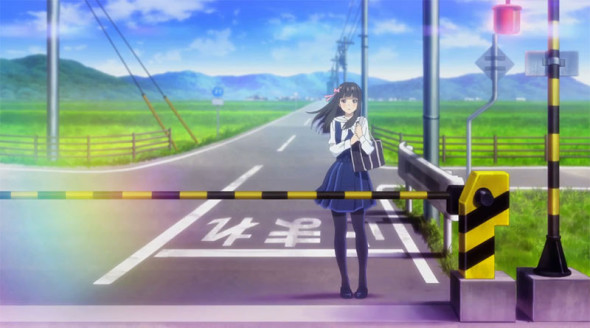 Root Letter really does mystery quite well, as there aren’t really ‘clue moments’ for you to realize the plot before you’ve gone through the tutorial as some mystery games tend to do. The writing of the characters and the way you react to their actions and what they say is really well done and it’s nice to see the consistency. There are however some spelling mistakes and with a game so heavy on the reading part, having writing mistakes is really not done. If Kodakawa Games were an indie publisher just starting out, letting this slide shouldn’t be the issue, but they aren’t and they should be held to slightly higher standards than starting out indie devs.
Root Letter really does mystery quite well, as there aren’t really ‘clue moments’ for you to realize the plot before you’ve gone through the tutorial as some mystery games tend to do. The writing of the characters and the way you react to their actions and what they say is really well done and it’s nice to see the consistency. There are however some spelling mistakes and with a game so heavy on the reading part, having writing mistakes is really not done. If Kodakawa Games were an indie publisher just starting out, letting this slide shouldn’t be the issue, but they aren’t and they should be held to slightly higher standards than starting out indie devs.
Graphics
Graphically, Root Letter is very stylized. The aesthetics and hand drawn characters are really well done and even though there aren’t any fully animated 3D cutscenes, the game doesn’t need them. It all stays consistent and contained as the cutscenes that are displayed are semi animated anime. They really capture the essence. The character design is reall interesting and the way they are slightly different to the characters as you imagined them when you read about them in the letters isn’t -strangely enough- clashing.
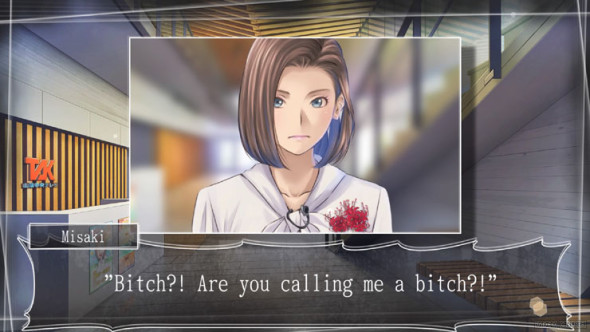 It somehow works because the way they are described is just minor personal traits, but when you actually get to meet them, it just clicks. It’s like reading a book and thinking up a character an then watching the movie only to find that the casted person fits the role quite nicely as well.
It somehow works because the way they are described is just minor personal traits, but when you actually get to meet them, it just clicks. It’s like reading a book and thinking up a character an then watching the movie only to find that the casted person fits the role quite nicely as well.
Sound
Someone give the audio team a serious pat on the back because they’ve-almost- nailed the audio. The voice acting is really stellar and you can really tell the emotional swings in a character when you press them for answers or back them into a corner. The only downside is that there’s only the Japanese audio. This isn’t really that big of a deal as it underlines the authenticity of the game but some players might prefer English voice acting. When it comes to music the game has some really catchy tunes and the sound effects add that extra layer of depth into the scenery.
Gameplay
Root Letter is a visual novel/adventure game. In it you’ll be tasked with finding out what happened to Aya Fumino. You’ll have to travel all from place to place and interact with the environment and other people to gain clues. The tutorial blends in perfectly with the actual game as you’ll unlock possible actions slowly and you’ll be able to adapt to the new gameplay mechanics quite easily.
There are a couple of actions you can do. There’s: move, which lets you move either to a place in the overworld or to another part of the place you are currently in. Then there’s: ask, this let’s you ask the questions to which you need answers. However asking the right questions at the right time is key to finding the answers. Check helps you find out clues in the surrounding area that will help you in your investigation. Inventory holds the items you pick up and which will help you unlock certain reactions of other people, which will further your search of Aya. If you are really stuck you can always pick ‘Think’. This basically tells you what your next step should be. Root Letter is quite clear with its cues so if you pay attention you won’t really be needing it but sometimes it really helps when you are stuck. Guidebook holds information on the places you’ve already visited and plays another role later on in the game.
Finally you can load or save your game on your ‘Smartphone’ or change up the options for Root Letter. If you think you’ll just be clicking through boring conversations you’re mightily mistaken as sometimes you’ll have to use every option and in the right succession while using the right items on people to get them to cooperate and this really is when the game shines. The ‘Max Mode’ is also a really fun add-on. In this mode you’ll have to wait for a gauge to hit the right spot for you to exclaim with everything you’ve got what you think about a situation or a person.
Conclusion
If you are looking for a good mystery game and don’t want to deal with a lot of action or a game that starts so slowly your interest will dwindle before the real plot of the story pics up, you’ll want to pick up this game. If however you want to physically control your character and are looking for a more action oriented game then Root Letter is something you’d best let pass by. The narrative is really well done and the blending of the music, the audio and the gameplay make for a unique fun game.
Root Letter – Review,2 Comments
Leave a Reply
You must be logged in to post a comment.

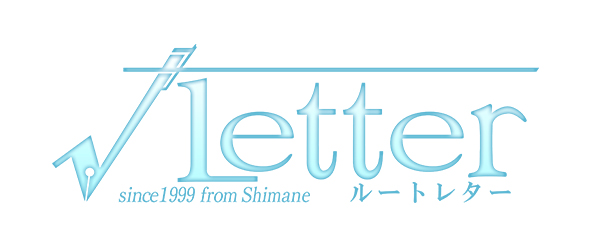
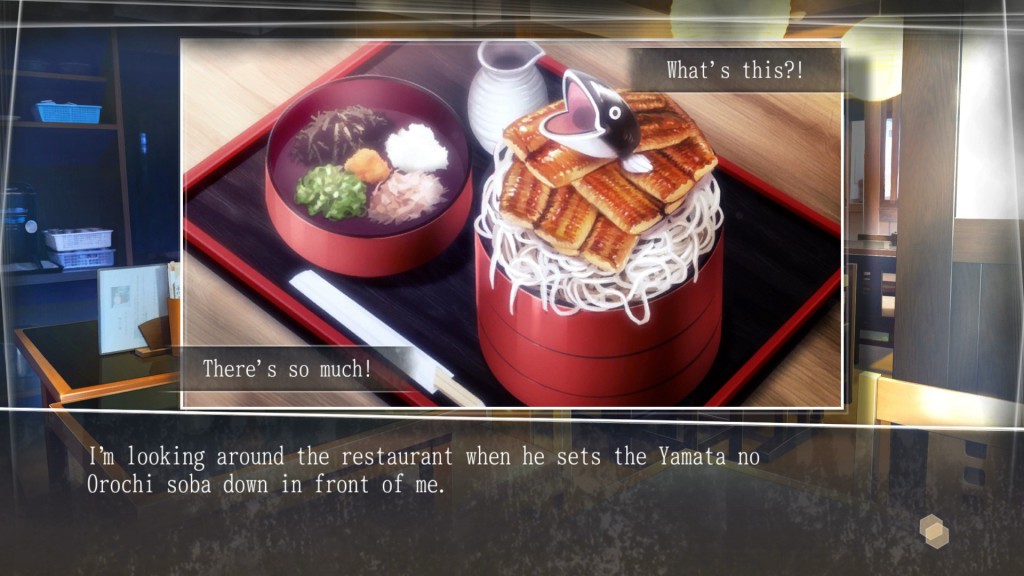
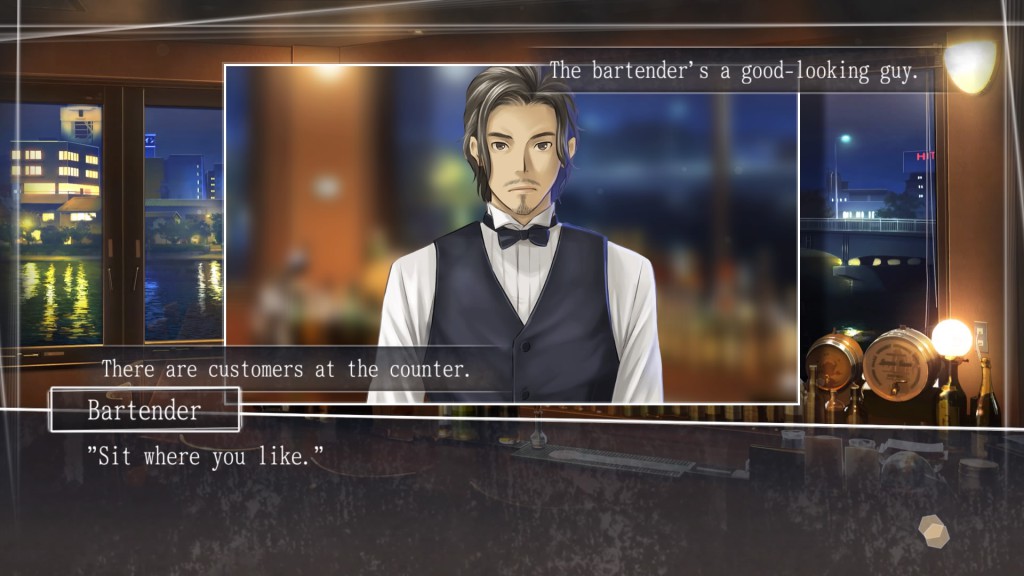

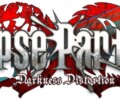


[…] is similar to that of an if statement. The switch statement will always be written with the letter switch (), with parentheses outlining the test and potential code, and curly brackets outlining the […]
[…] feel like a mystery game. As such, it belongs in a specific niche category, alongside titles like Root Letter, Ace Attorney, or Yurukill more than Amnesia or Caffeine. After playing through the initial […]